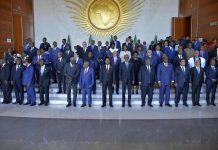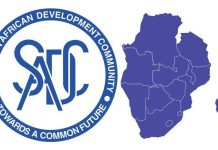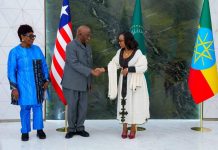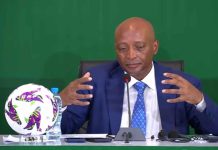Africa-Press – Lesotho. INDEPENDENT Electoral Commission (IEC) Director of Elections, Mphaiphele Maqutu, has vowed to take decisive action against any political party that fails to abide by the country’s electoral laws.
In an exclusive interview with the Lesotho Times on Monday this week, Advocate (Adv) Maqutu said the IEC had embarked on a party deregistration and accountability exercise after realising some of the parties, whether big or small, were non-compliant and needed prodding to account.
According to Adv Maqutu, parties that did not comply with the law and failed to account for IEC funding meant for election campaigns and other administrative purposes, regardless of their size and status, would not be receiving “not even a single cent” from the electoral body as a measure to enforce discipline and ensure compliance.
The IEC, he added, was working hard to ensure compliance was taken seriously, further asserting the so-called key political parties were not beyond reproach just because the early stages of the deregistration exercise had seemingly affected smaller parties.
“Remember that as IEC, we look at all political parties the same.
Rest assured, and I want this to come out clearly, that as the IEC, we will not hesitate to even take on the big guns if they don’t comply. It is uniformity for all and allegiance to none.
That’s our motto here. So, we will treat everybody the same,” Adv Maqutu said. “So, honestly those heavyweights. . . . the writing is on the wall. Make sure that you play your part. As the IEC, we have no interest, we will just look at those that are non-compliant. No matter how big or small you are, we will enforce compliance.
And in fact, I have written a letter to all political parties, telling them that those who haven’t reported both in terms of campaign funding as well as reporting on party agents, they are not going to get another cent from the IEC.
And we are going to enforce that. I can assure you we will enforce that, well, of course, within the parameters of what the law allows us. If there is someone who has funding that is outstanding and it has not been reported, honestly, it’s not personal.
We will not give you money. They should know that for a fact. ” Commenting on the contentious issue of fly-by-night political parties, Adv Maqutu said certain quarters of society suspected some political parties were formed for the primary purpose of self-enrichment through the acquisition of IEC funding.
“As the IEC, I won’t say that, but the writing is on the wall when you look at some, I won’t say all, of those parties who will take campaign funding where it is available and field as little number of candidates as possible.
Then you will wonder why they register the parties in the first instance,” Adv Maqutu said. “So, for those who behave that way, I think the writing is on the wall.
You will remember we also had incidents of political parties who, when they were supposed to take funding from us to pay party agents, they started stealing from themselves.
It is clear that such parties never had any intention to electioneer or play in the electioneering space. It can be interpreted as a way of self-enrichment, which is very regrettable because we live in a country that falls under the least-developed countries category.
If the parties can use that money that is hardly there in the fiscus for self-enrichment, that is something to frown upon. ” Meanwhile, addressing the media on Tuesday from the IEC headquarters on a similar issue, Adv Maqutu bemoaned lack of compliance with IEC regulations and accountability of IEC funding by political parties.
Adv Maqutu further said only 14 out of over 50 registered political parties, were 100 percent compliant, while six ranged from 81-percent to 95-percent and 11 of them were 73-percent to 74-percent compliant.
The elections director added that another 11 parties were between 7-35 percent compliant, while five parties were zero-percent compliant. Some political parties, he further noted, did not account for party agents funding, while others had failed to account for campaign and party funding.
Adv Maqutu further warned that the electoral body would take the legal route and sue political parties that fail to comply with IEC regulations. The IEC, he reiterated, would continue to deregister parties, having already removed 15 parties from the commission’s register.
“Political parties are failing to abide by the law, and we appeal to them to be compliant and accountable.
The IEC has formally engaged with them through writing letters to them about reporting and being accountable; our next step is to drag them to court and sue them.
We will do everything we can to force compliance because it is our duty to make sure they comply,” Adv Maqutu said. He promised that parties would soon see ‘summons’ in the newspapers.
“In the past elections, government has been allocating M5 million to the IEC, which is shared by political parties for election campaign funding.
M4 million is allocated to political parties in parliament which participated in previous elections and the amount each party receives is influenced by performance in the last elections,” Adv Maqutu explained.
“Going to the 2022 general elections, the party which had the most seats in 2017, received M1.6 million, the second received M979 000, the new parties were allocated M21 000 based on 500 registered members.
” In addition, Adv Maqutu said 47 political parties received party agents funding in March.
“The IEC allocated M20 million for party agents and 47 political parties received the money in March.
The party funding allocations were M3.36 million, where the party with the most seats received M1.1 million, while others were given M26 419 per seat,” he said.
For More News And Analysis About Lesotho Follow Africa-Press






